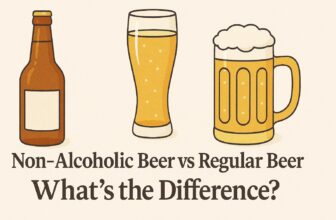
Kopi Luwak, or civet coffee, is not just a beverage; it’s a luxurious experience. Known for its unique production method, where civets consume coffee cherries and the beans are collected from their droppings, Kopi Luwak has gained a reputation for being one of the most expensive coffees in the world. As the demand for this specialty coffee rises, so does its online market presence. This article explores the dynamics of the online market for Kopi Luwak, examining trends, consumer behavior, ethical considerations, and future prospects.
The Rise of E-Commerce in the Coffee Sector
E-Commerce Growth Statistics
The shift to online shopping has transformed the retail landscape across various industries, and the coffee sector is no exception. According to Statista, the global coffee market is projected to reach approximately USD 155.64 billion by 2026, with specialty coffees, including Kopi Luwak, playing an increasingly vital role.
As reported by IBISWorld, the online coffee sales industry has experienced a growth rate of about 15% annually over the last five years. This rapid growth can be attributed to changing consumer preferences and the convenience that e-commerce offers. Coffee lovers can now purchase their favorite blends and single-origin coffees with just a few clicks, making it easier to explore niche products like Kopi Luwak.
Consumer Trends
A Nielsen study indicates that 40% of consumers prefer to shop for coffee online, citing convenience and the ability to compare products as major factors. This trend aligns with the rising interest in specialty coffees. Kopi Luwak, being a unique product with a fascinating story, attracts curious consumers who are willing to pay a premium for the experience.
Market Dynamics for Kopi Luwak
Accessibility of Specialty Coffee
The online market has significantly improved accessibility for Kopi Luwak. Consumers can easily browse a variety of brands and blends, often accompanied by detailed descriptions, tasting notes, and customer reviews. This accessibility allows buyers to make informed decisions and discover unique products that may not be available locally.
Competitive Pricing Landscape
One of the advantages of online shopping is the competitive pricing that arises from various sellers. Online retailers generally have lower overhead costs compared to brick-and-mortar stores, enabling them to offer attractive prices. For Kopi Luwak, this competition means consumers can find a range of options at different price points, making luxury more attainable.
For instance, a quick search on Amazon reveals Kopi Luwak products ranging from $30 to over $100 per pound, depending on the brand and quality. This variance allows consumers to choose products that fit their budget while still indulging in a unique coffee experience.
Popular Online Retailers
Several online platforms specialize in selling Kopi Luwak, ensuring consumers have access to high-quality products. Some notable retailers include:
1. Amazon
As one of the largest online marketplaces, Amazon offers a diverse selection of Kopi Luwak brands. The platform provides customer reviews, ratings, and detailed product descriptions, enabling consumers to make informed choices. Furthermore, the convenience of fast shipping makes it an attractive option for many buyers.
2. Specialty Coffee Websites
Numerous specialty coffee shops and brands have established online stores, allowing customers to purchase ethically sourced Kopi Luwak directly from the producers. Websites such as BuyLuwakCoffee.com and KopiLuwakOfficial.com emphasize their commitment to quality and ethical practices, catering to consumers seeking premium products.
3. Direct-to-Consumer Brands
Brands focusing on direct-to-consumer sales often highlight their unique selling propositions. For example, companies like Kopiluwak.co promote their commitment to sustainability and animal welfare, resonating with ethically conscious consumers. These brands often provide information about their sourcing practices, which enhances their credibility in the eyes of potential buyers.
Trends Shaping the Online Kopi Luwak Market
Ethical Sourcing and Sustainability
In an age of increased awareness about ethical sourcing practices, consumers are prioritizing brands that emphasize sustainability and animal welfare. The online market has responded to this demand by highlighting ethically sourced Kopi Luwak. This trend not only appeals to consumers’ ethical values but also enhances brand loyalty.
According to a survey by Mintel, 60% of consumers are willing to pay more for ethically sourced products. This statistic is particularly relevant for Kopi Luwak, where the production process has raised concerns about animal welfare. Ethical producers often showcase their practices, assuring customers that their products come from sustainable sources.
The Role of Social Media Marketing
Social media platforms play a crucial role in promoting Kopi Luwak to a broader audience. Brands utilize Instagram, Facebook, and TikTok to showcase their products, engage with customers, and create buzz around their offerings. Influencer partnerships have also become a popular marketing strategy, as social media influencers help introduce Kopi Luwak to their followers, creating interest and desire for the product.
A study by Hootsuite indicates that over 80% of consumers are influenced by social media when making purchasing decisions. This statistic underscores the importance of having a strong online presence for brands selling Kopi Luwak.
Consumer Behavior in the Kopi Luwak Market
Demographics of Kopi Luwak Consumers
The typical consumer of Kopi Luwak is often characterized by certain demographics:
- Age Group: Most Kopi Luwak buyers fall within the 25-45 age range, comprising millennials and Gen Z. These consumers are typically more adventurous and open to trying new products.
- Income Level: Given the premium price of Kopi Luwak, the majority of consumers tend to have a higher disposable income, allowing them to indulge in luxury coffee experiences.
- Geographical Trends: The popularity of Kopi Luwak has grown significantly in regions such as North America, Europe, and parts of Asia. In these markets, consumers are increasingly seeking out specialty coffees to satisfy their refined tastes.
Motivations for Purchasing Kopi Luwak
Several factors drive consumers to purchase Kopi Luwak online:
- Curiosity: The unique production process and exotic origins of Kopi Luwak spark curiosity among coffee enthusiasts. Many consumers are eager to experience this rare coffee and share their experiences with friends and family.
- Status Symbol: Kopi Luwak is often perceived as a luxury product. Owning and serving this coffee can be seen as a status symbol, allowing consumers to showcase their refined taste and knowledge of specialty coffees.
- Gifting: Many consumers purchase Kopi Luwak as gifts for special occasions. The unique story behind the coffee makes it an intriguing and thoughtful present for coffee lovers.
Future Outlook for the Online Kopi Luwak Market
Continued Growth of E-Commerce
The trend of purchasing coffee online is expected to persist, with more consumers becoming comfortable with e-commerce platforms. The convenience of online shopping, coupled with the desire for specialty products, will likely drive further growth in the Kopi Luwak market.
As the World Economic Forum predicts, global e-commerce sales are expected to reach USD 6.4 trillion by 2024. This growth provides a fertile ground for Kopi Luwak sellers to expand their reach and capture a larger share of the market.
Focus on Consumer Education
As Kopi Luwak remains a niche product, educating consumers about its unique qualities and production process will be crucial. Online retailers can play a vital role in this by providing informative content, such as blog posts, videos, and tasting guides, to enhance consumer knowledge and appreciation of the product.
Technological Advancements in E-Commerce
Advancements in technology, such as mobile shopping apps and personalized recommendations, will likely shape the future of online coffee sales. Retailers who adapt to these changes and invest in user-friendly platforms will be better positioned to capture the growing demand for Kopi Luwak.
Ethical Considerations and Consumer Responsibility
Addressing Concerns
While the online market for Kopi Luwak offers numerous opportunities, it also presents challenges, particularly concerning ethical sourcing practices. Consumers must be vigilant when purchasing Kopi Luwak to ensure they are supporting brands that prioritize animal welfare and sustainable practices.
Transparency in Sourcing
Online retailers should strive for transparency in their sourcing practices, providing detailed information about how their Kopi Luwak is produced. This transparency helps build trust with consumers and assures them that they are making responsible purchasing decisions.
Embracing the Future of Kopi Luwak Online
The online market for Kopi Luwak is thriving, driven by changing consumer preferences and the convenience of e-commerce. As more coffee lovers seek out this unique beverage, the demand for ethically sourced and high-quality Kopi Luwak will continue to grow. By embracing ethical practices, innovative marketing strategies, and technological advancements, the future looks promising for Kopi Luwak in the online marketplace.
In addition to the growing online market, the demand for Kopi Luwak has led to a rise in diverse product offerings. Consumers can now find a range of blends, including various roast levels and packaging options tailored to their preferences. Some retailers even offer subscription services, allowing coffee lovers to receive their favorite Kopi Luwak directly at their doorstep regularly. This convenience caters to the modern consumer’s busy lifestyle while ensuring they never run out of this exquisite brew. For those eager to experience this luxury coffee, a quick visit to Kopi Luwak for Sale will provide access to premium options that showcase the unique flavors of this sought-after beverage.
Sources:
- Statista. (2021). “Coffee Market – Statistics & Facts.”
- IBISWorld. (2020). “Coffee Shop Industry in the US – Market Research Report.”
- Nielsen. (2020). “Consumer Behavior Trends in Coffee Purchases.”
- Mintel. (2020). “Consumer Attitudes Towards Ethical Sourcing.”
- Hootsuite. (2021). “The Global State of Digital in 2021.”
- World Economic Forum. (2020). “The Future of Retail: How E-Commerce Is Transforming Consumer Behavior.”







